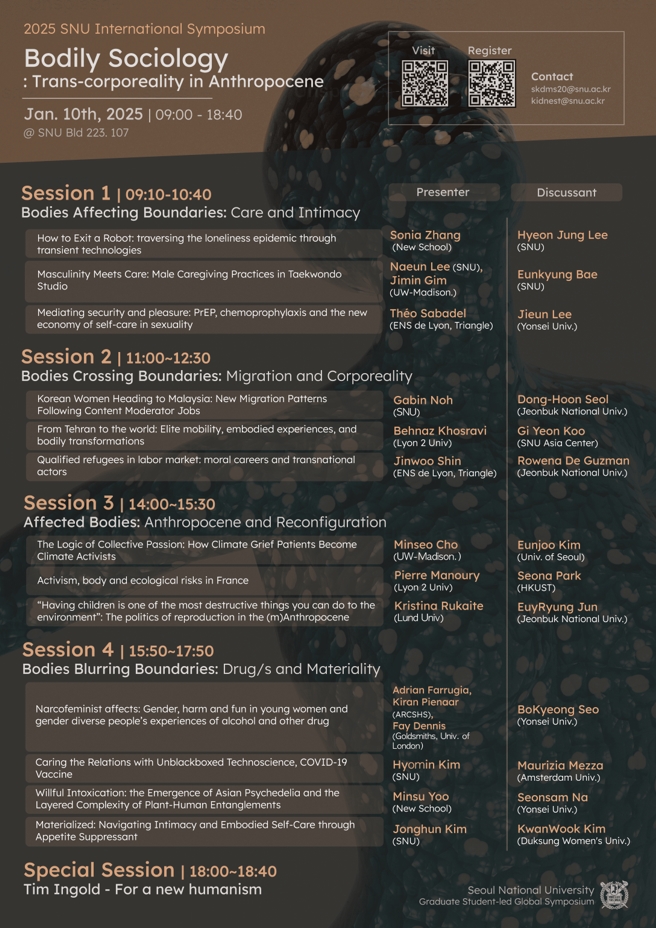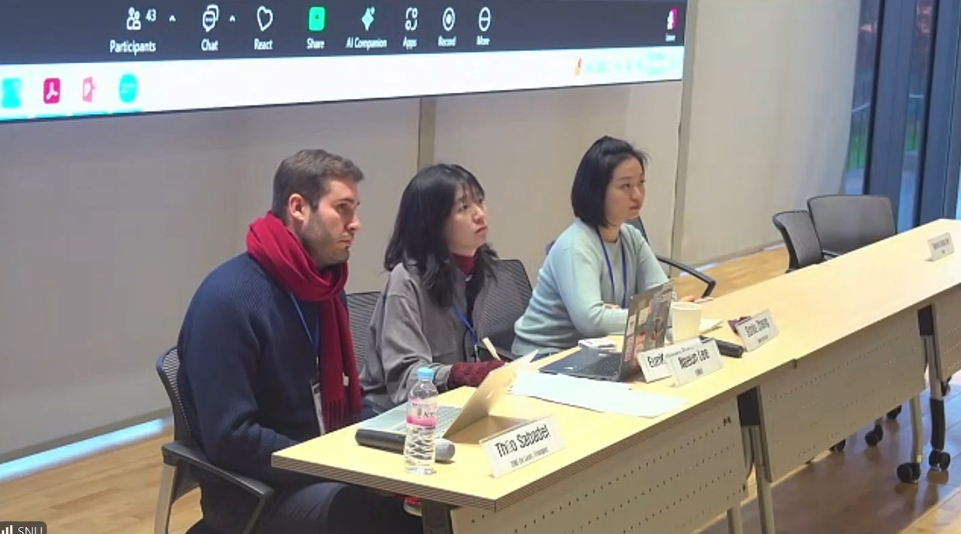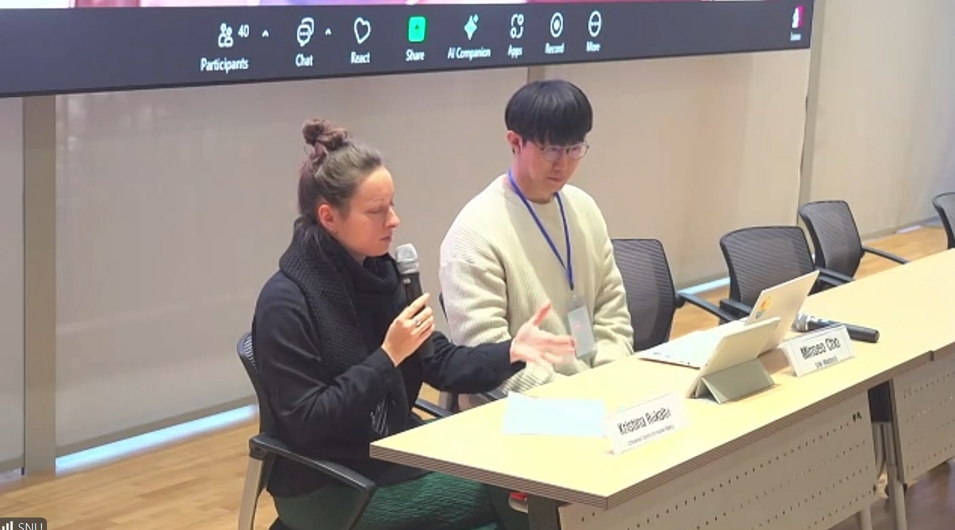Last September, as part of its commitment to global academic engagement, the SNU Office of Research Affairs (ORA) newly launched its Graduate Student-led Global Symposium Grant Program. This initiative aims to empower SNU graduate students to lead and organize international academic symposiums, and nurture academic leadership through offering a grant of up to 25 million won. By fostering collaboration and networking with overseas peers, six symposiums, each led by a different department, were selected to be hosted in its inaugural year.
On January 10, as one of the six symposiums selected for the grant, the Department of Sociology hosted its graduate student-led symposium titled Bodily Sociology: Trans-Corporeality in Anthropocene (https://bsociology.ext.acheul.net/). The event was conducted in four sessions by Ph.D. students and postdocs from Korea and overseas, focusing on themes of the body, posthumanism, field research and qualitative research, as well as the intersection of sociology and anthropology.

Poster for the symposium
Bodies in Care: Loneliness, Caregiving, and Intimacy
The first session, titled “Care and Intimacy: Bodies Affecting Boundaries,” started off with a presentation led by Sonia Zhang (The New School) discussing a robot named Orihime, which was developed to address loneliness, especially for individuals with disabilities. It was first designed by a student recovering from two years of social isolation due to severe illness, during which he realised that access to everyday connections with others through mundane activities such as going to school or work was a privilege. Orihime was thus created in an attempt to overcome the loneliness that stems from situations of physical immobility. Although Zhang elaborated upon the ways Orihime could achieve its original purpose, she also critiqued the way Orihime’s design sidestepped issues such as discrimination against those with disabilities instead opting for a narrative of social integration over activism.
Following this, Naeun Lee (SNU) and Jimin Gim (University of Wisconsin-Madison) jointly presented on how becoming a caregiver can intersect and impact masculinity, transforming its idea into a blend of care and discipline. They used the evolving role of Taekwondo centers in South Korea, now also providing care for children, as a primary example. The changing nature of these centers helped redefine the concept of masculinity of the male instructors, expanding their role from martial artists to more paternal one. Although these positive transitions were recognised, the study also identified areas of weakness including the fact that caregiving is often still framed within traditional masculine values such as discipline and responsibility, limiting a broader expression of care.

Sonia Zhang, Naeun Lee, and Théo Sabadel answering questions during the Q&A segment
Bodies in Activism: Climate Grief, Eco-Anxiety, and Reproductive Politics
Another session, “Affected Bodies: Anthropocene and Reconfiguration,” kicked off with a presentation by Minseo Cho (University of Wisconsin-Madison) examining how climate grief, or emotional suffering due to the climate crisis, creates a passion for activism. Continuing with the theme of environmental activism, Pierre Manouy (Lumière University Lyon 2) spoke on how activism can also take a physical and emotional toll on people, such as through burnout, physical strain, and eco-anxiety. To conclude, Kristina Rūkaitė from the Lithuanian Center for Human Rights examined reproductive politics in the Anthropocene, focusing on the growing narrative that having fewer children is one of the most effective ways to combat climate change. In particular, she critiqued its gendered implications and how it is a form of population control, especially impacting marginalized groups.

Minseo Cho and Kristina Rūkaitė answering questions during the Q&A segment
The Symposium hosted by the Department of Sociology shows the promising results of the SNU Office of Research Affairs’ grant programThe results of the other symposiums will be published by the end of February. This program demonstrates SNU's dedication to equipping its students with global leadership skills. The interdisciplinary discussions fostered by these symposiums highlight their potential to bridge academic and cultural divides. Applications for the 2025 program will open in spring via the SNU ORA website (https://snurnd.snu.ac.kr/).
Written by Eusun Lee, SNU English Editor, sunnylee006@snu.ac.kr

